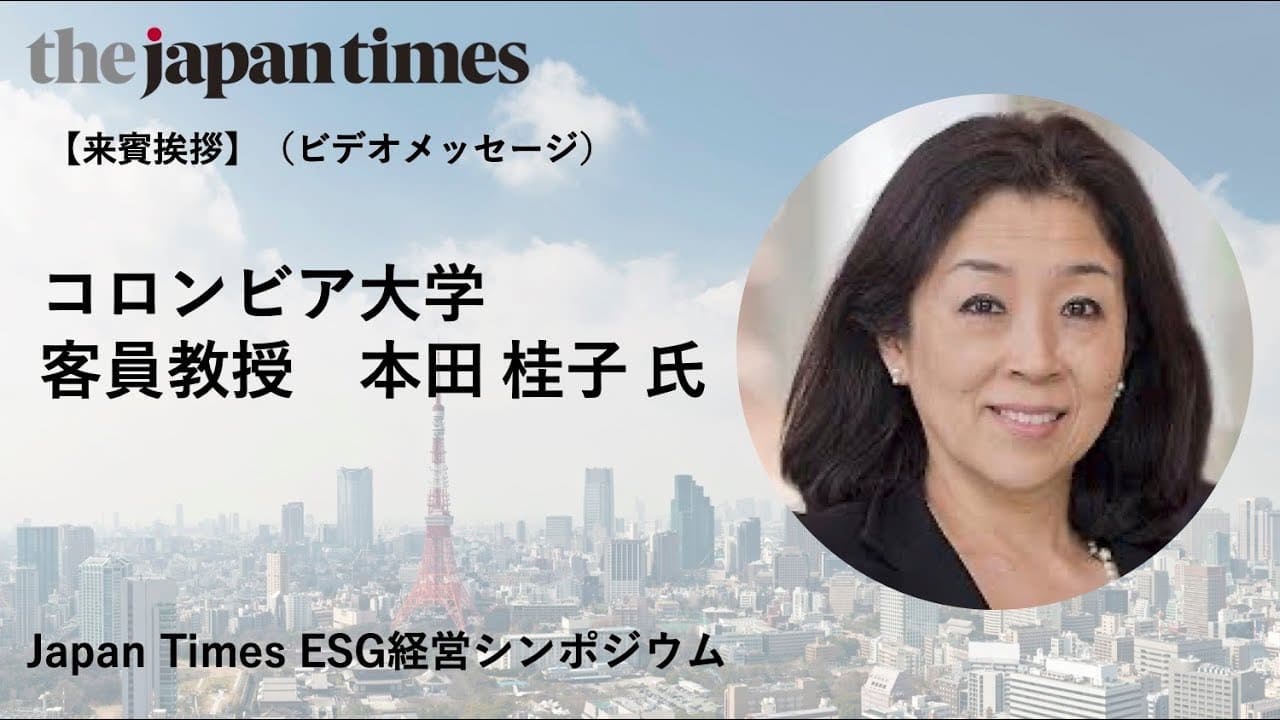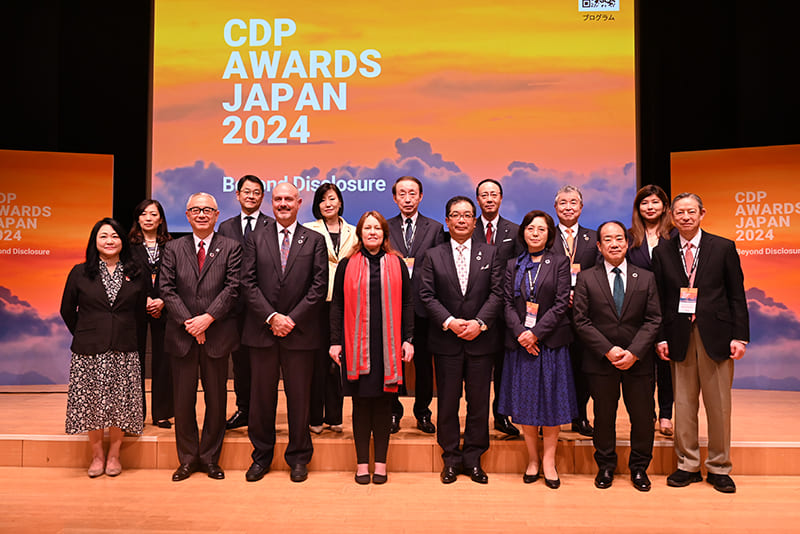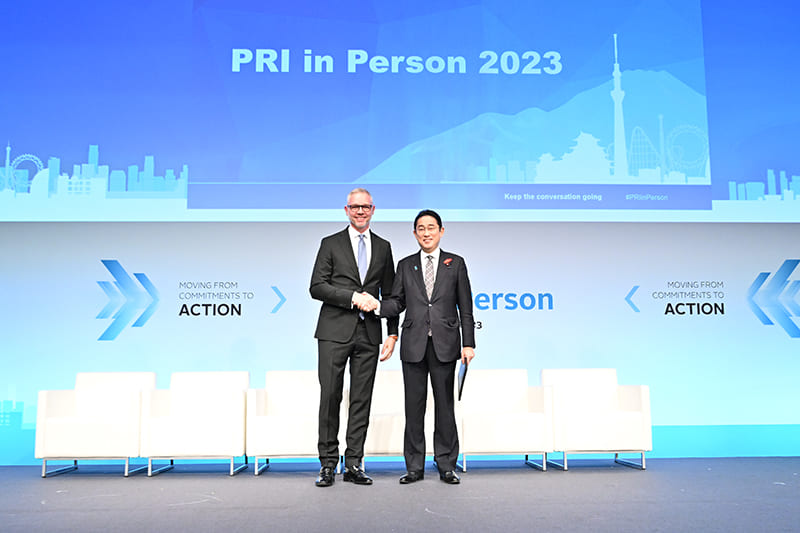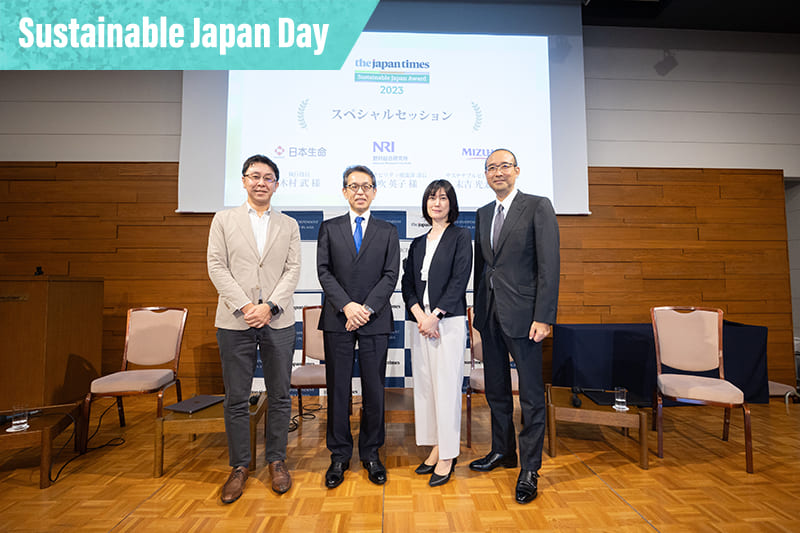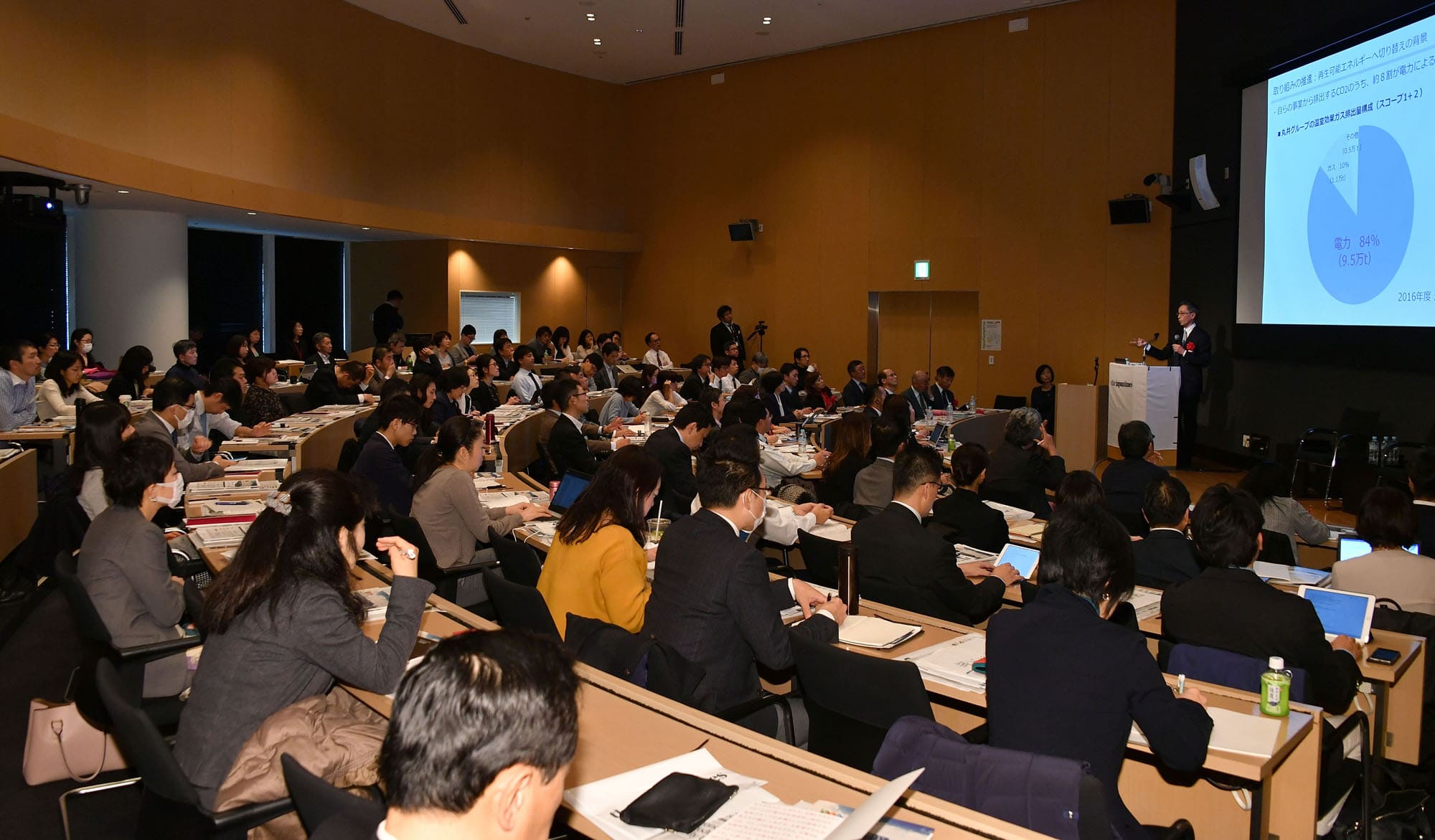May 29, 2021
Columbia professor Honda sees ESG growing
Contributing writer
Keiko Honda
Columbia University, Adjunct Professor

Keiko Honda, a Columbia University adjunct professor, participated through video message in the ESG symposium organized by The Japan Times and held on May 13. In her message, she said although Japan’s ESG investment is increasing, it should do more to reduce its carbon dioxide emissions.
The abnormal weather caused by global warming is bringing about an era in which big companies’ profits are changing significantly, Honda said, heralding ESG management, which incorporates the nonfinancial indicators “E,” “S” and “G” — environmental, social and corporate governance.
“I am currently researching and giving lectures on ESG investment at Columbia University in New York, and I find the emphasis on ESG among investors is further strengthening,” she said.
A 2018 survey conducted by the Global Sustainable Investment Alliance shows 49% of the assets under management by the institutional investors who participated in the survey were ESG investments in Europe. The figure was 25% for the U.S. and 18% for Japan. With the start of ESG investment by the Government Pension Investment Fund in Japan, ESG investment is increasing.
“We are currently waiting for the results of the survey conducted in 2020, but in recent years, there is no day when we do not see the word ‘ESG’ in major media,” Honda said.
“So, I’m sure those figures are increasing,” she said.
Japanese investors do consider ESG investment important, but Honda thinks it is extremely so for investors in Western countries, especially in Europe. In addition, as a social issue in the world, the environment aspect is attracting attention, she said.
As a member of the World Bank Group’s Multilateral Investment Guarantee Agency (MIGA), Honda participated in the Paris Agreement and remembers noticing with great surprise that it was clear, not only to citizens but also to companies, how solutions had to be applied.
In addition, there are at present many disagreements over various issues among the major countries in the world, but regarding climate change, not only Europe but the U.S. and China as well recognize it as an important issue and have a clear goal to resolve it together, with Europe and the U.S. aiming to achieve zero emissions by 2050 and China by 2060.
“So, I personally think that this is a very big issue that will continue showing progress in the next few years because there is a climate change problem that can be agreed upon, among many issues that cannot be easily agreed upon,” Honda said.
On the other hand, in Japan, Honda thinks two points must be kept in mind when pushing the issue of climate change. For one, there are many people who do not agree that climate change is a very important issue for the Earth and who do not worry about it.
Secondly, many people think that Japan is ahead regarding the reduction of carbon dioxide emissions. Japan certainly emits less carbon dioxide per person than the U.S. and Canada, but more than France, the United Kingdom and Italy. Japan emitted less than Germany as of 2017 but overtook it in 2019.
“So, even in the context of the G7, Japan has fallen below the emission reduction average,” Honda said.
Japan also emits more carbon dioxide per capita than China. “It is understandable that Japan must provide a stable supply of electricity due to the power generation review because of the March 2011 major earthquake, but it shares the Earth with other countries and is the third-largest country economically,” Honda said.

